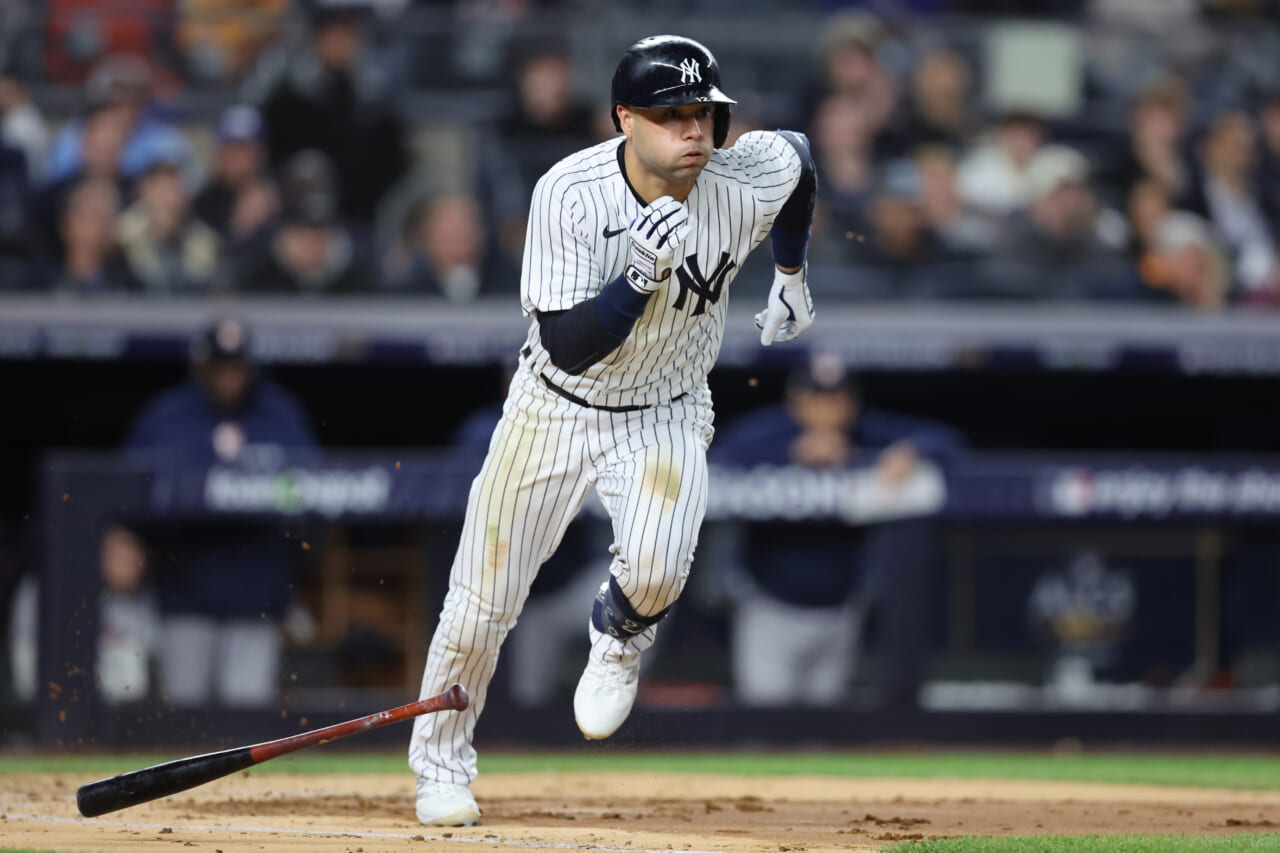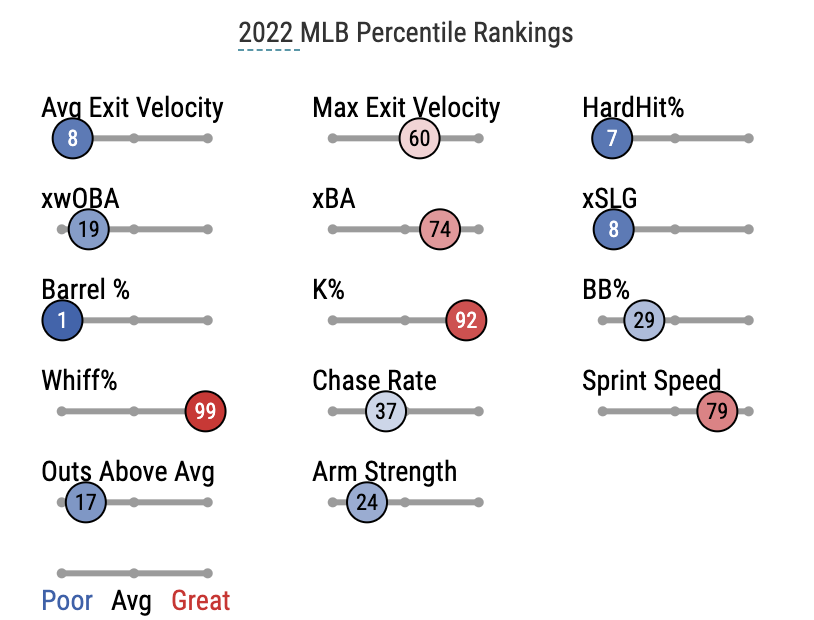
If I were a betting man, the Yankees trading Josh Donaldson or Isiah Kiner-Falefa would be at the top of my sheet. Ultimately, Donaldson is owed a tremendous amount of money this upcoming season, and IKF simply doesn’t have enough value to coin him as an everyday starter, especially coming off a polarizing 2022 season.
Despite lackluster performances and unsettled positions, general manager Brian Cashman continues to promote the players on the roster, indicating there will be position battles to determine what the infield looks like in 2023.
At this point in time, the projected starters at shortstop and third base include Oswald Peraza and DJ LeMahieu. That would send Donaldson and IKF to the bench, which certainly isn’t ideal given how much money the 37-year-old is earning and the limited capabilities of the 27-year-old.
- Yankees get offensive explosion in 7-3 victory over the Athletics
- Yankees hope to get injured reliever back on mound this weekend
- Yankees’ Gleyber Torres Opens Up About Tough Start: ‘Let’s see what happens at the end of the year’
The Yankees are giving Isiah Kiner-Falefa a chance to elevate his game:
Focusing on Kiner-Falefa, he’s coming off an interesting first year with the Bombers. He hit .261 with a .314 OBP, four homers, 48 RBIs, and 22 stolen bases. He earned a 13.6% strikeout rate and a 6.6% walk rate, which may be the most impressive of his numbers. Many point to IKF as a contact-hitting machine, but when most of those balls are weekly hit toward infielders, it doesn’t really matter. He doesn’t offer much slugging, recording a 29.8% hard-hit rate last year with a 1.2% barrel rate, the worst since his rookie season back in 2018.
Unfortunately, the Yankees can’t rely on him to get the ball out of the park, but that was never supposed to be his purpose. Instead, he was meant to put the ball and play and drive runners in, but getting on base at a 31.4% clip is simply insignificant.
18.4% of Kiner-Falefa’s hits were considered soft contact, with 61.6% regarded as medium speed. He produced a 54.9% ground ball rate last year, only pulling the baseball on 35.3% of his contact. His 24.3% fly-ball rate doesn’t promote heavy home run hitting, considering he logged a 4% HR/FB ratio. That means only 4% of his fly balls resulted in homers, which is an extremely small number.
Nonetheless, as we have diagnosed, IKF’s purpose was never to be a power hitter but rather to put the ball in play and utilize his athleticism on base. The problem is his inability to get on base makes him a liability in the batting order, which is why the Yankees have their sights set on Oswald Peraza and Anthony Volpe as the future at the position.

Cashman has already indicated that Kiner-Falefa will have a shot to compete for the starting shortstop job, but given the fact he was benched during the playoffs and fails to make routine ground balls look easy, my money is on Peraza.
Even if Peraza struggles, the Yankees should consider giving Volpe the supplementary reps instead of IKF, whose future with the team is undoubtedly over after the 2023 season concludes.
What positive variables does Isiah Kiner-Falefa bring to the team?
Let’s try our best to advocate for IKF and what he brings to the table. At just 27 years old, joining a Yankee team that demands production is certainly not an easy task. The young in-fielder was challenged to a degree he likely never experienced in Texas this past season, so he may rise to the occasion after learning about himself and how to handle excessive criticism.
Defensively, he played over 1,180 innings at shortstop, proving durability, which has been a problem for the Bombers in the past. He did earn 10 defensive runs saved above average, which is a positive metric that manager Aaron Boone frequently references when defending Isiah.
Even if IKF loses the starting shortstop battle, moving Donaldson and keeping him as the team’s alternative option at shortstop and third base could be a valuable move. Clearing $21 million off the books in the form of Donaldson’s contract would be a significant amount of salary space Cashman can allocate elsewhere. IKF earning $6 million becomes a tolerable number, even if he ends up being used as a depth piece.